Words of Wisdom
Student explains her passion for writing and future plans
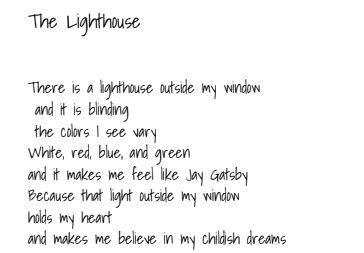
Photo Courtesy of Ireland Weaver
An excerpt of ‘Lighthouse’ by sophomore Ireland Weaver. Weaver often writes things that tell stories that highlight the pain and emotional experiences in people’s lives. “For me, talking about great tragedies, like losing people, losing yourself and then getting that back, struggling, finding out who you are, that’s what it’s about,” Weaver said. “For a lot of people that have read my stuff, this seems kind of sad to them, but for me, it’s like surviving. Telling the stories of people persevering.”
November 6, 2019
From short stories, to poems, to screenplays, sophomore Ireland Weaver has written it all. Some of her works include “The Lighthouse,” “Advice from 16,” “Midnight Swim,” “1985” and “The Sky Between Us.” Weaver said her passion for writing began from a very young age, when she would often write her own stories.
“I think it started when I was really young,” Weaver said. “I would watch TV shows and think about what they could have done differently. I sort of write my own stories because I felt like that was something I could control.”
Weaver loves writing simply because it is a way for her to use her creativity and it is something she can modify however she desires.
“For me, writing is a way to create the world you want to see or one you wish you hadn’t,” Weaver said. “I love that. I love how at the root of every piece of writing is the author’s personal story. Everything that they shove down and try to keep secret comes bubbling up. They change everything about it through the setting, names, and events. They change so much about the story that everyone sees it as complete fiction, while it is really a reflection of the author’s life.”
Weaver often writes things that tell stories that highlight the pain and emotional experiences in people’s lives.
“For me, talking about great tragedies, like losing people, losing yourself and then getting that back, struggling, finding out who you are, that’s what it’s about,” Weaver said. “For a lot of people that have read my stuff, this seems kind of sad to them, but for me, it’s like surviving. Telling the stories of people persevering.”
She said she intends to keep her owns style of writing but still uses inspiration from other writers.
“I don’t want to be like anybody else,” Weaver said. “I think a lot of older screenwriters from the golden age of Hollywood have lightly inspired me, but I don’t take too much influence from anybody. Although I don’t have many influences when it comes to screenwriting, when it comes to poetry, someone that really influenced me was Robert Frost.”
Weaver said that “Nothing Gold Can Stay” by Frost really impacted her.
“That poem really influenced me because you see him,” Weaver said. “It’s like one of those perfect poems where you can see that whatever the reader went through is what the reader picks up, but if you look past what you think its about and try to imagine him writing it, as an older man, things he wished he could have done, then realizing that even if he had done things differently, he is happy where he is now.”
She said her most favorite piece of work that she had created was a poem called “The Lighthouse”.
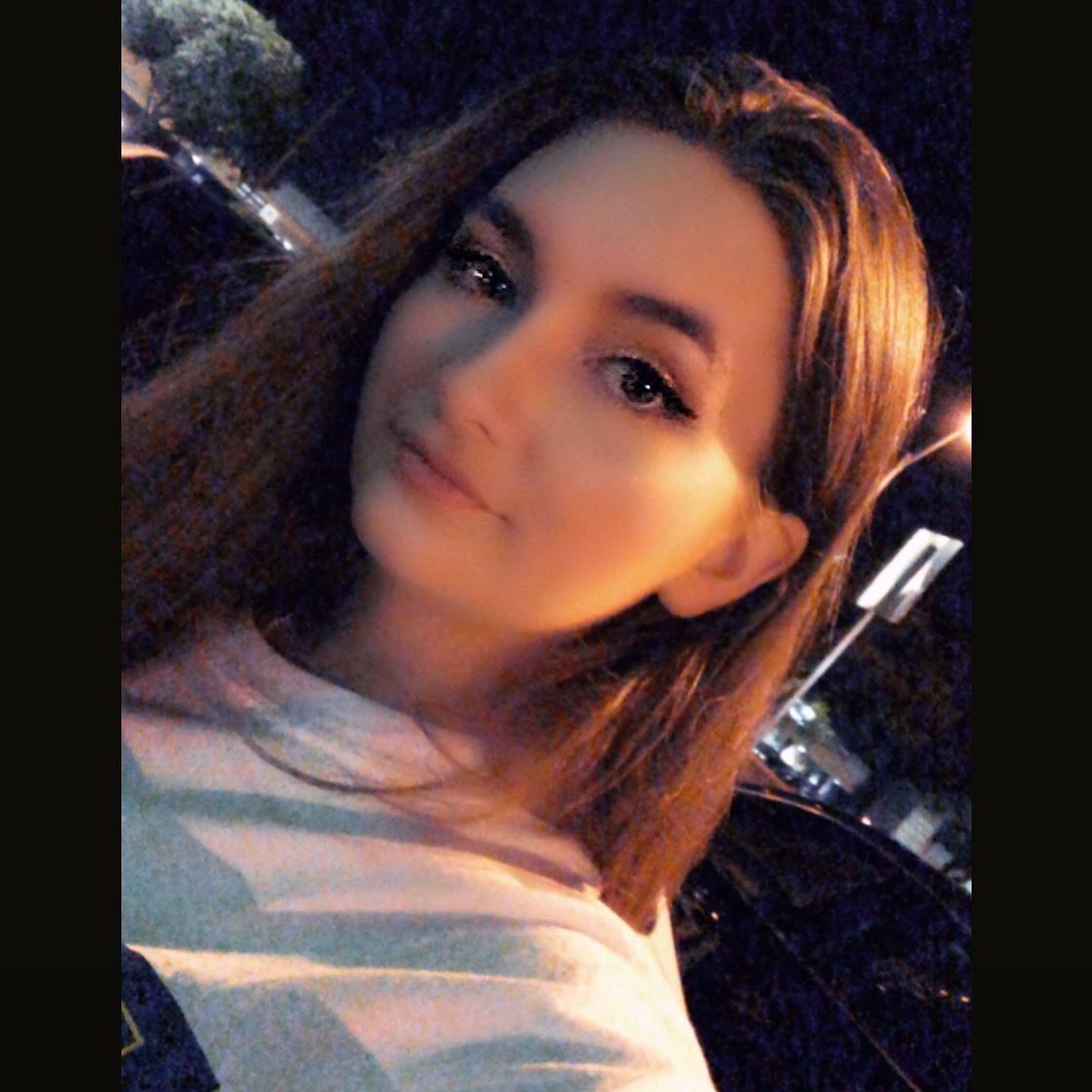
“It is the story of this girl who sees this lighthouse outside her window,” Weaver said. “The worse her life gets, the lighthouse starts to fade away. In her darkest moments, she sees the lighthouse again, and she realizes that that lighthouse was her younger self and that she is trying to be a lighthouse for other people, and saving people that are still left in the storm.”
Weaver is currently working on a screenplay that highlights the struggles of the pain humans experience.
“It goes into depth about how you get hurt,” Weaver said. “As humans, you get hurt. And it’s not getting hurt that is important, rather it is what you do after that. You have to keep going.”
Weaver has submitted five poems this past October to the YoungArts Writing Competition, a nationwide competition that includes works from many forms of art, such as theatre, writing and photography.
“This is my first year to submit,” Weaver said. “I haven’t submitted to other competitions, but I have submitted my work to small magazines.”
Weaver also submitted a screenplay titled “A Two Sided Bottle” in 2018 to the Scholastic and Writing Competition for which she won the silver key. According to their website, silver keys are awarded to pieces that “demonstrate exceptional ability.”
She said that she often gets inspired by her life and likes to write stories about significant events in the lives of other people.
“For me, it’s not their exact story, but it’s the emotion from different things that have happened,” Weaver said. “ I think that the actual story can be different, but the actual emotion you get from it can be the same. When I write anything, it’s 40 percent for me, and 60 percent for the audience. At the root of it, it’s my story or whatever story is there, and then the rest of it is for the reader and for them to put their own story onto it.”
Weaver is able to incorporate the significant struggles that other people experience in pieces of writing. She explains the meaning behind her poem “The Lighthouse” and how this has tied into several other themes she has used in her work.
“Its that emotion of feeling worthless, feeling tired, feeling that everyone has given up on you,” Weaver said. “Then to have that moment of hope and optimism is really amazing. I think everybody gets to a point where they have given up on their childhood dreams. Then you feel like you have let down your younger self, that they are judging you. But then, you can hit this moment where you don’t feel like you can get out of something. Then in that moment, the strength of that younger person who would have gone through anything and would have been your advocate, that’s the person that you feel like you have to get up for. Every person has gotten to the point where they feel worthless. But every single person eventually gets out of that, and starts to figure out about what path you want to be on and who they are.”
Weaver wishes to pursue her passion as a screenwriter in the future and wants to inspire people like herself.
“I was never smart. I was bad at everything, and for me, TV and movies were an escape,” Weaver said. “I thought about becoming a novelist, but I wanted to help people like me. People that didn’t feel as smart, who didn’t think that reading was their strongest part. That’s why I decided to become a screenwriter. To create films about people who don’t necessarily get a voice. I just want to give people an escape that film and TV have given me.”



![Jumping off the ground, senior linebacker Bennett Patton snatches the ball out of the air for an interception at Thursday’s game against Chaparral. Patton had two interceptions in the 56-14 victory, tying the school record for interceptions in a game. “I was just playing the game,” Patton said. “[I’m] going to go into next week, forget about it and stay humble.” Photo by Harper Chapman](https://cphswolfpack.com/wp-content/uploads/2025/09/bennett-interception.jpg)
![The fire department came to the school after students were evacuated when smoke started coming from the ceiling of a classroom. All students and staff are safe. “All of my friends left their stuff too, so we couldn’t contact our parents, and it was stressful,” senior Brynn Fowler said. “It was scary because I didn’t know [what was going on], and I couldn’t find anyone because it was a big crowd.” Photo by Anthony Garcia](https://cphswolfpack.com/wp-content/uploads/2025/09/firetruck.jpg)


![Sitting with her friend senior Sohpia Struve at last year’s Austin City Limits Festival, senior Ava Zuniga poses for a picture under a pavilion. They are frequent attendees at ACL, an annual music festival at Zilker Park. “I would recommend seeing a bunch of people,” Zuniga said. “This past year, we camped out for Chappell [Roan] for a really long time. I think the whole point of ACL, [which] is a lot of fun, is that you can go see so many different people, even if you don’t know them. So by camping by one person, it really limits yourself from being able to go see a bunch of people.” Photo courtesy of Ava Zuniga](https://cphswolfpack.com/wp-content/uploads/2025/10/EE9E9484-FE6F-4AA0-B5F5-0C177AB32841-1200x857.jpeg)
![Broadcast, yearbook and newspaper combined for 66 Interscholastic League Press Conference awards this year. Yearbook won 43, newspaper won 14 and broadcast took home nine. “I think [the ILPC awards] are a great way to give the kids some acknowledgement for all of their hard work,” newspaper and yearbook adviser Paige Hert said. “They typically spend the year covering everyone else’s big moments, so it’s really cool for them to be celebrated so many times and in so many different ways.”](https://cphswolfpack.com/wp-content/uploads/2025/05/edited-ILPC.jpg)




![Looking down at his racket, junior Hasun Nguyen hits the green tennis ball. Hasun has played tennis since he was 9 years old, and he is on the varsity team. "I feel like it’s not really appreciated in America as much, but [tennis] is a really competitive and mentally challenging sport,” Nguyen said. “I’m really level-headed and can keep my cool during a match, and that helps me play a bit better under pressure.” Photo by Kyra Cox](https://cphswolfpack.com/wp-content/uploads/2025/09/hasun.jpg)


![Bringing her arm over her head and taking a quick breath, junior Lauren Lucas swims the final laps of the 500 freestyle at the regionals swimming competition on date. Lucas broke the school’s 18-year-old record for the 500 freestyle at regionals and again at state with a time of 4:58.63. “I’d had my eye on that 500 record since my freshman year, so I was really excited to see if I could get it at regionals or districts,” Lucas said. “ State is always a really fun experience and medaling for the first time was really great. It was a very very tight race, [so] I was a bit surprised [that I medaled]. [There were] a lot of fast girls at the meet in general, [and] it was like a dogfight back and forth, back and forth.” Photo by Kaydence Wilkinson](https://cphswolfpack.com/wp-content/uploads/2025/03/Kaydence-2.7-23-edit-2.jpg)
![As the support team sits and poses for a photo in the cafeteria with the counseling team they eagerly wait to start their day. "We [all] seem to be a team, I get up every day and there's days where I don't want to go to work today, but I'm thankful that I have a job and I'm blessed to have what I have," Christopherson said. Photo Courtesy of Julie Weltens.](https://cphswolfpack.com/wp-content/uploads/2025/01/AF9E8470-10D7-4C91-BF28-EC8F86BAB66C-1200x852.jpeg)
![Officer Stephanie Cash is in her second year as an SRO at CPHS. “Seeing [students] grow over the years has been kind of cool,” Officer Cash said. “Freshmen that [are] all over the place and then in the next couple of years get a little more squared away and go to class and do work and start thinking about the future. Being a part of a student's growth is the best way to measure my success as an SRO.” Photo Courtesy of Cedar Park Police Department's PIO, Alicia Gallagher.](https://cphswolfpack.com/wp-content/uploads/2024/12/CPHS-SRO-900x1200.jpg)
![As he sprints with the ball, senior running back Trae Hill breaks a tackle during Friday’s 35-14 loss against the Vandegrift Vipers. Hill ran for 135 yards and two touchdowns during the game. “[Scoring] was electric,” Hill said. “It always feels good to score, but the O-line did everything.”](https://cphswolfpack.com/wp-content/uploads/2025/09/IMG_0795allie.varfb_-1200x799.jpg)














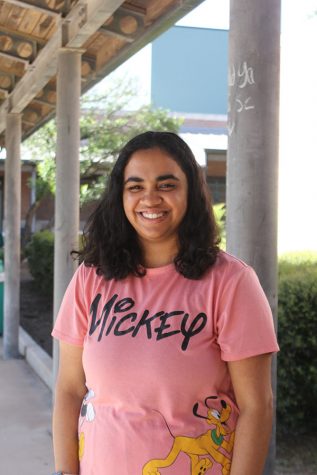




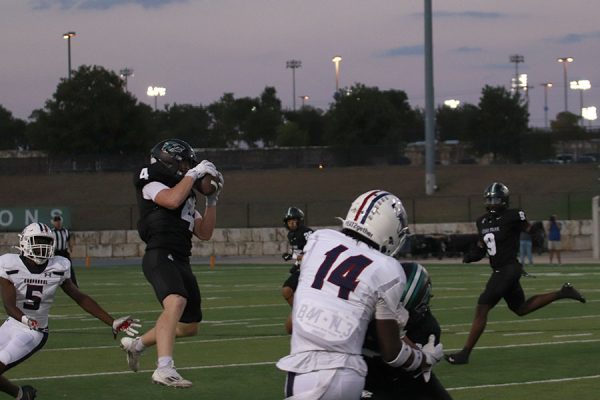

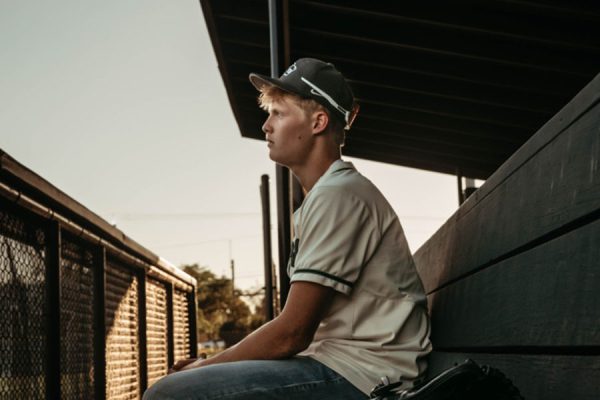

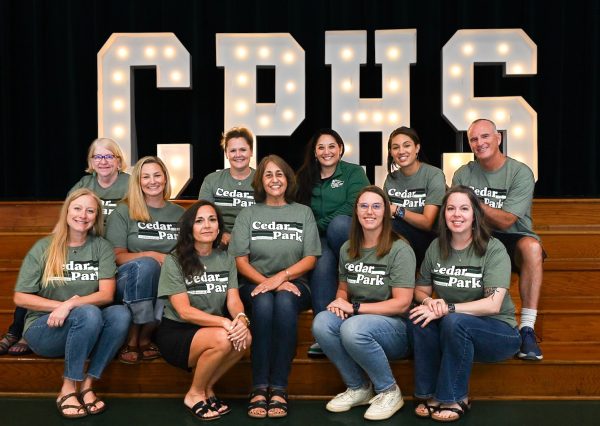

![The fire department came to the school after students were evacuated when smoke started coming from the ceiling of a classroom. All students and staff are safe. “All of my friends left their stuff too, so we couldn’t contact our parents, and it was stressful,” senior Brynn Fowler said. “It was scary because I didn’t know [what was going on], and I couldn’t find anyone because it was a big crowd.” Photo by Anthony Garcia](https://cphswolfpack.com/wp-content/uploads/2025/09/firetruck-300x200.jpg)

![Finishing her night out after attending a local concert, senior Grace Sauers smiles at the camera. She recently started a business, PrettySick, that takes photos as well as sells merch at local concert venues. Next year, she will attend Columbia Chicago College majoring in Graphic Design. “There's such a good communal scene because there [are] great venues in Austin,” Sauers said. “I'm gonna miss it in Austin, but I do know Chicago is good, it's not like I'm going to the middle of nowhere. I just have to find my footing again.” Photo Courtesy of Grace Sauers.](https://cphswolfpack.com/wp-content/uploads/2025/04/Grace-300x225.png)


